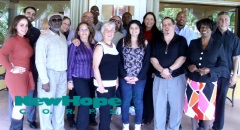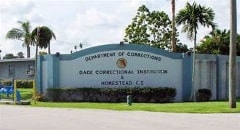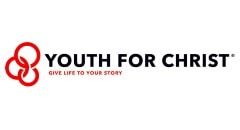
What We Believe - The Heidelberg Catechism
The Heidelberg Catechism was written in Heidelberg at the request of Elector Frederick III, ruler of the most influential German province, the Palatinate, from 1559 to 1576. This pious Christian prince commissioned Zacharius Ursinus, twenty-eight years of age and professor of theology at the Heidelberg University, and Caspar Olevianus, twenty-six years old and Frederick's court preacher, to prepare a catechism for instructing the youth and for guiding pastors and teachers. Frederick obtained the advice and cooperation of the entire theological faculty in the preparation of the Catechism. The Heidelberg Catechism was adopted by a Synod in Heidelberg and published in German with a preface by Frederick III, dated January 19, 1563. A second and third German edition, each with some small additions, as well as a Latin translation were published in Heidelberg in the same year.
The Catechism was soon divided into fifty-two sections, so that a section of the Catechism could be explained to the churches each Sunday of the year. In The Netherlands this Heidelberg Catechism became generally and favorably known almost as soon as it came from the press, mainly through the efforts of Petrus Dathenus, who translated it into the Dutch language and added this translation to his Dutch rendering of the Genevan Psalter, which was published in 1566. In the same year, Peter Gabriel set the example of explaining this catechism to his congregation at Amsterdam in his Sunday afternoon sermons.
The National Synods of the sixteenth century adopted it as one of the Three Forms of Unity, requiring office-bearers to subscribe to it and ministers to explain it to the churches. These requirements were strongly emphasized by the great Synod of Dort in 1618-19. The Heidelberg Catechism has been translated into many languages and is the most influential and the most generally accepted of the several catechisms of Reformation times.
The above introduction is provided by The Westminster Theological Seminary.
An online copy of The Heidelberg Catechism is provided by the Westminster Theological Seminary.
What We Believe - The Belgic Confession
The oldest of the doctrinal standards of the Christian Reformed Church is the Confession of Faith, popularly known as the Belgic Confession, following the seventeenth-century Latin designation "Confessio Belgica." "Belgica" referred to the whole of the Netherlands, both north and south, which today is divided into the Netherlands and Belgium. The confession's chief author was Guido de Bräs, a preacher of the Reformed churches of the Netherlands, who died a martyr to the faith in the year 1567.
During the sixteenth century the churches in this country were exposed to the most terrible persecution by the Roman Catholic government. To protest against this cruel oppression, and to prove to the persecutors that the adherents of the Reformed faith were not rebels, as was laid to their charge, but law-abiding citizens who professed the true Christian doctrine according to the Holy Scriptures, de Bräs prepared this confession in the year 1561. In the following year a copy was sent to King Philip II, together with an address in which the petitioners declared that they were ready to obey the government in all lawful things, but that they would "offer their backs to stripes, their tongues to knives, their mouths to gags, and their whole bodies to the fire," rather than deny the truth expressed in this confession. Although the immediate purpose of securing freedom from persecution was not attained, and de Bräs himself fell as one of the many thousands who sealed their faith with their lives, his work has endured and will continue to endure. In its composition the author availed himself to some extent of a confession of the Reformed churches in France, written chiefly by John Calvin, published two years earlier.
The work of de Bräs, however, is not a mere revision of Calvin's work, but an independent composition. In 1566 the text of this confession was revised at a synod held at Antwerp. In the Netherlands it was at once gladly received by the churches, and it was adopted by national synods held during the last three decades of the sixteenth century. The text, not the contents, was revised again at the Synod of Dort in 1618-19 and adopted as one of the doctrinal standards to which all officebearers in the Reformed churches were required to subscribe. The confession stands as one of the best symbolical statements of Reformed doctrine. The translation presented here is based on the French text of 1619.
The above introduction is provided by The Westminster Theological Seminary.
An online copy of The Belgic Confession is provided by the Westminster Theological Seminary.
What We Believe - The Ecumenical Creeds
The Ecumenical Creeds - Introduction
Excerpt from: “Protestant Creeds and Confessions” by author, Ryan Reeves, Ligonier Ministries.
“The Reformation was a struggle over the essentials of the faith. First with Luther, and then with other Protestant traditions, the Reformers set biblical faith over against that of Roman Catholic teachings and the papal magisterium. Pointing to the Bible as the exclusive source of doctrine, Protestants nevertheless had to articulate their understanding of biblical teaching. In this sense, the Reformation confessions were a natural flowering of the Protestant commitment to the Bible.
Protestants did not invent the need for confessions. Over the centuries, the church has always confessed the faith in the midst of confusion or crisis. The role of a creed or confession was never to replace Scripture, but rather to sum up the church’s witness to the truth in Scripture over against error.
The most famous examples of this impulse are the historic creeds—such as the Nicene and Chalcedonian creeds—written between the third and fifth centuries. These creeds sprang from the same need as later Protestant confessions—namely, the need to clarify what the church holds essential on doctrinal matters.”
Read MoreThe Council of Chalcedon
Excerpt from “Truly God, Truly Man: The Council of Chalcedon” by Nicholas Needham, Ligonier Ministries.
“It's hard enough to pronounce “Chalcedon.” Getting to grips with its theology can be even more daunting. But the effort will be very richly rewarded. For the past 1,500 years, right up to the present day, virtually all orthodox Christian theologians have defined their “orthodoxy” with reference to the Council of Chalcedon. That certainly includes the Reformed tradition. We may not think that the early ecumenical councils were infallible. But we have generally held that they were gloriously right in what they affirmed, and that Christians who take the church and its history seriously must reckon with these great councils as providential landmarks in the unfolding life story of God’s people.”
Read MoreThe Chalcedonian Definition (or Creed)
“We, then, following the holy fathers, all with one consent teach men to confess one and the same Son, our Lord Jesus Christ, the same perfect in Godhead and also perfect in manhood; truly God and truly man, of a rational soul and body; coessential with the Father according to the Godhead, and consubstantial with us according to the manhood; in all things like unto us, without sin; begotten before all ages of the Father according to the Godhead, and in these latter days, for us and for our salvation, born of the Virgin Mary, the mother of God, according to the manhood; one and the same Christ, Son, Lord, Only-begotten, to be acknowledged in two natures, without confusion, without change, without division, without separation; the distinction of natures being by no means taken away by the union, but rather the property of each nature being preserved, and concurring in one person and one subsistence, not parted or divided into two persons, but one and the same Son, and only begotten, God the Word, the Lord Jesus Christ; as the prophets from the beginning have declared concerning Him, and the Lord Jesus Christ Himself has taught us, and the creed of the holy fathers has handed down to us.”
Excerpt from: Protestant Reformed Churches in America.
The Nicene Creed
The following is from the Christian Reformed Church. Further background on the Nicene creed may be found on the Christian Reformed Church's site.
We believe in one God,
the Father almighty,
maker of heaven and earth,
of all things visible and invisible.
And in one Lord Jesus Christ,
the only Son of God,
begotten from the Father before all ages,
God from God,
Light from Light,
true God from true God,
begotten, not made;
of the same essence as the Father.
Through him all things were made.
For us and for our salvation
he came down from heaven;
he became incarnate by the Holy Spirit and the virgin Mary,
and was made human.
He was crucified for us under Pontius Pilate;
he suffered and was buried.
The third day he rose again, according to the Scriptures.
He ascended to heaven
and is seated at the right hand of the Father.
He will come again with glory
to judge the living and the dead.
His kingdom will never end.
And we believe in the Holy Spirit,
the Lord, the giver of life.
He proceeds from the Father and the Son,
and with the Father and the Son is worshiped and glorified.
He spoke through the prophets.
We believe in one holy catholic and apostolic church.
We affirm one baptism for the forgiveness of sins.
We look forward to the resurrection of the dead,
and to life in the world to come. Amen.
The Apostles' Creed
The following is from the Christian Reformed Church. Further background on the Apostles' creed may be found on the Christian Reformed Church's site.
I believe in God, the Father almighty,
creator of heaven and earth.
I believe in Jesus Christ, his only Son, our Lord,
who was conceived by the Holy Spirit
and born of the virgin Mary.
He suffered under Pontius Pilate,
was crucified, died, and was buried;
he descended to hell.
The third day he rose again from the dead.
He ascended to heaven
and is seated at the right hand of God the Father almighty.
From there he will come to judge the living and the dead.
I believe in the Holy Spirit,
the holy catholic* church,
the communion of saints,
the forgiveness of sins,
the resurrection of the body,
and the life everlasting. Amen.
*that is, the true Christian church of all times and all places
Our Ministries
New Hope C.O.R.P.S.
Contact: Aldo LeonThis email address is being protected from spambots. You need JavaScript enabled to view it.
+1 (305) 440-1912
When: Wednesday evenings
Where: 1020 N Krome Ave, Homestead, FL 33030
We seek to engage the local community through serving the men in New Hope. The facility is located .7 miles from the Seminole Theater.
New Hope is a “non-profit faith-based organization providing residential and outpatient substance abuse and mental health treatment to the indigent and homeless population in need of our services.”
Agape Family Ministries
Contact: Aldo LeonThis email address is being protected from spambots. You need JavaScript enabled to view it.
+1 (305) 440-1912
When: Once a Month, Friday PM
Where: 1020 N Krome Ave, Homestead, FL 33030
We seek to engage the local community through serving the women and families of Agape. The facility is located 12 miles from the Seminole Theater.
Agape integrates behavioral health care with primary care, empowering individuals and families to self-manage their condition and make better use of healthcare and social services resources.
Women’s Ministry
Contact: Rebecca LeonThis email address is being protected from spambots. You need JavaScript enabled to view it.
+1 (305) 440-1912
When: 9:30AM, last Saturday, monthly
Where: The Leon Residence
We desire to build relationships between the women of Reconcile and their relationships with Jesus Christ. The women engage in a devotional read from New Morning Mercies by Paul Tripp as well enjoy food and fellowship. These are casual meetings that are aimed at explaining and expressing biblical truths as well as experiencing the beauties of the gospel in a real way.
Men's Ministry
Contact: Aldo LeonThis email address is being protected from spambots. You need JavaScript enabled to view it.
+1 (305) 440-1912
When: every other month, Saturday
Where: local restaurants
We desire to build relationships between the men of Reconcile and their relationships with Jesus Christ. These are casual meetings that take place in the community as we seek to be a light to those around us.
Reconcile Prison Ministry
Contact: Aldo LeonThis email address is being protected from spambots. You need JavaScript enabled to view it.
+1 (305) 440-1912
When: Monthly, Sunday
Where: Dade Correctional Institute
Reconcile Prison ministry partners with MINTS Seminary to provide weekly bible training in reformed theology. Reconcile also has established a church service on Sundays in the prison. Reconcile seeks to bring biblical training and local church life to Dade Correctional Institution in the Homestead area.
Youth Ministry
Contact: Aldo LeonThis email address is being protected from spambots. You need JavaScript enabled to view it.
+1 (305) 440-1912
When: Monthly, consult our calendar
Where: Youth for Christ, Homestead
KIX is an ministry to youths in West Homestead that seeks to bring kids to saving faith in Christ, provide a safe space for recreation and relationship building, assist kids in practical skills pertaining to life and education, and engage and empower kids in their context for positive influence. Reconcile is involved with various bible studies and events with KIX staff.
Give
You can support Reconcile Church Miami by donating to a special fund set up by our sending church, Providence Road Church. The following are instructions on how to proceed:
Follow these steps
- Follow this link: https://prclife.elexiopulse.com/default.aspx to be directed to PRC's Online Giving page.
- Login (or if a First time user, create an account or use the other options, such as Google+).
- Click on the "Give" tab.
- Your page should look like the figure to the left.
- Fill in Payment information.
- Designate "Church Plant Fund"
- Important: In the comments, type in: "Reconcile Church Miami"
- Don't forget to hit "Submit"
Thanks for supporting us!












